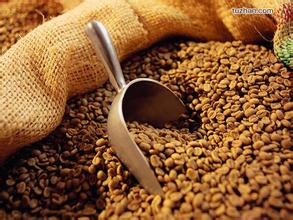Details of the latest coffee beans of Ethiopian boutique coffee
Fortunately, there is coffee, and there is still a pleasant and relaxing time in Ethiopia. As the birthplace of coffee, it produces the best Arabian coffee. Legend has it that in the kaffa area of Ethiopia, when a shepherd was herding his sheep, he was excited to find that his sheep had eaten some kind of red fruit, so he distributed the fruit to the people around him. Later, people called it coffee, which evolved from the word kaffa. Nowadays, walking on the streets of Addis Ababa is full of ordinary cafe and roadside coffee stands. Cafe is a more elegant store. Even so, most of them do not have bright floor-to-ceiling windows. People are holding cups and watching street views from semi-open-air booths, which are dark and noisy, such as the old teahouses of the last century. The scene seems to bring people back to Vietnam, in front of a short plastic table, a newspaper in the morning, waiting for coffee to be mixed with thick condensed milk, wasting the morning without taking the waste of time seriously.

Although the Ethiopian Yirgacheffe coffee is petite, it is gentle and delicate and sweet. As the hometown of coffee, thousands of years of planting history and processing tradition in Ethiopia have created high-quality washed Arabica beans. Light baking has unique sweet aromas of lemon, flowers and honey, soft acidity and citrus flavors, fresh and bright on the palate. No milk or sugar, let the rich texture and unique soft flower scent brush your taste buds, leaving an endless aftertaste.
Yega Xuefei is a small town, 700-21000 meters above sea level, synonymous with Ethiopian boutique coffee. It has been a wetland since ancient times. The ancient saying "Yirga" means "settle down" and "Cheffe" means "wetland". The mode of production and flavor of coffee here is so outstanding that Ethiopian coffee farmers compete to be proud of the flavor of their coffee, making it the most famous coffee producing area in Africa.
Important Notice :
前街咖啡 FrontStreet Coffee has moved to new addredd:
FrontStreet Coffee Address: 315,Donghua East Road,GuangZhou
Tel:020 38364473
- Prev

Introduction to the latest flavor of Cuban Crystal Mountain Coffee
Crystal Mountain Coffee comes from the Crystal Mountain of Cuba, so it is called Cuban Crystal Mountain Coffee. Crystal Mountain Coffee is synonymous with top Cuban coffee, because this area not only grows coffee, but also produces quartz, crystal and other precious minerals. A prominent feature of Crystal Mountain Coffee is its large granule and bright green color of coffee beans. Its flavor and taste characteristics: full granules, uniform taste
- Next

Introduction of charming and fragrant Rosa coffee boutique coffee beans
The species of Geisha was discovered in the Rose Summer Forest of Ethiopia in 1931 and sent to the Coffee Institute in Kenya; it was introduced to Uganda and Tanzania in 1936, in Costa Rica in 1953, and Panama was introduced in the 1970s by Francesca of Dongba Seven Farm Garden. Mr. Serraxin got the seeds from CATIE in Costa Rica and started growing Rosa Coffee because
Related
- Detailed explanation of Jadeite planting Land in Panamanian Jadeite Manor introduction to the grading system of Jadeite competitive bidding, Red bid, Green bid and Rose Summer
- Story of Coffee planting in Brenka region of Costa Rica Stonehenge Manor anaerobic heavy honey treatment of flavor mouth
- What's on the barrel of Blue Mountain Coffee beans?
- Can American coffee also pull flowers? How to use hot American style to pull out a good-looking pattern?
- Can you make a cold extract with coffee beans? What is the right proportion for cold-extracted coffee formula?
- Indonesian PWN Gold Mandrine Coffee Origin Features Flavor How to Chong? Mandolin coffee is American.
- A brief introduction to the flavor characteristics of Brazilian yellow bourbon coffee beans
- What is the effect of different water quality on the flavor of cold-extracted coffee? What kind of water is best for brewing coffee?
- Why do you think of Rose Summer whenever you mention Panamanian coffee?
- Introduction to the characteristics of authentic blue mountain coffee bean producing areas? What is the CIB Coffee Authority in Jamaica?

